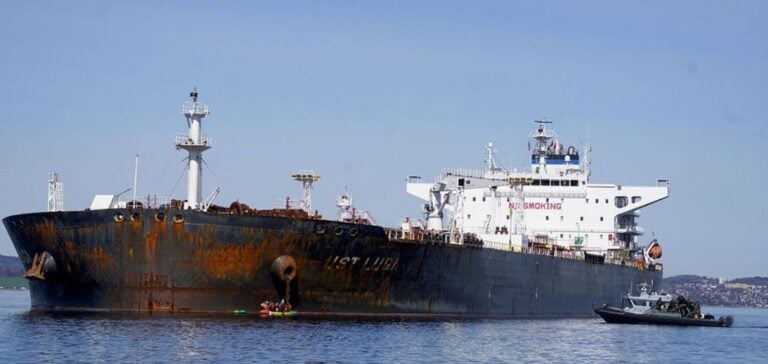The British government has tightened its measures against the Russian “ghost fleet” by sanctioning 30 additional ships, bringing the total number of targeted vessels to 73. This announcement, made by Foreign Secretary David Lammy during a G7 meeting near Rome, underscores London’s commitment to combating Russian schemes to circumvent international sanctions.
According to the Foreign Office, these ships enabled Russia to transport over $4.3 billion (€4.1 billion) worth of oil and petroleum products over the past year. These exports represent a significant portion of Moscow’s oil revenue, which largely funds its military efforts in Ukraine.
A Collective Effort to Counter Russian Exports
The United States and the European Union have also implemented similar measures, with 39 and 19 ships sanctioned, respectively. These coordinated actions reflect a shared commitment among Western nations to counter Russia’s strategy while strengthening financial and economic sanctions.
The UK also announced actions against two Russian insurance companies facilitating the fleet’s operations. These companies play a crucial role in maintaining these exports by insuring the risks associated with maritime oil transport.
Key Figures of the “Ghost Fleet”
Estimated at around 600 ships, the Russian “ghost fleet” transports nearly 1.7 million barrels of oil daily, according to British data released in July. This transport capacity, enabled by the use of flags of convenience, is a cornerstone of Russia’s energy exports. Two of the newly sanctioned vessels fly the flags of Gabon and Honduras, highlighting the international scope of these operations.
In July, during the summit of the European Political Community (EPC) in England, 46 countries and the European Union signed a call to action against this fleet. This international consensus marks a crucial step in coordinating efforts to prevent Russia from circumventing sanctions.






















